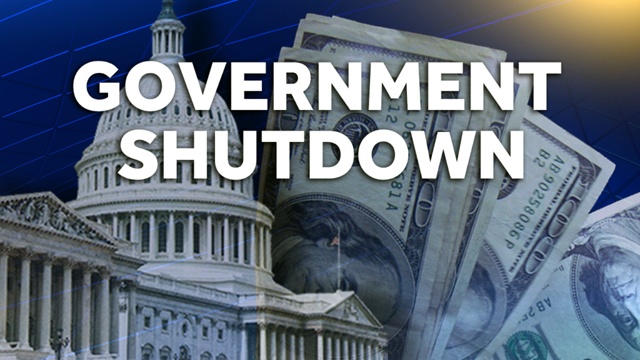The media and the left are playing up the economic damage from the shutdown. No doubt, there will be some disruption. But it won’t be economic armageddon, not by a long shot.
Fears of shutdowns at airports and national parks have been prominent in media coverage. No doubt, some will be inconvenienced.
But will it lead to an economic meltdown, as some have suggested? Not likely.
Let’s start with a few facts. Shutdowns have occurred before, most recently in 1995 and 1996, and in 2013. In each case, these relatively short shutdowns had minimal economic impacts.
The media have weighed in with breathless reports of economic pain from the shutdown. But for non-furloughed federal employees, this will be the first week without a paycheck. And unlike past shutdowns, just a quarter of the federal workforce of 3 million-plus workers will feel the effects since much of the government remains open.
That’s a much smaller part of the government closed than in the past. But that doesn’t mean there will be no economic impact at all.
GDP Forecasts Trimmed
J.P. Morgan rattled markets by cutting its first-quarter GDP forecast to 2% from 2.25% because of the shutdown. And Bank of America Merrill Lynch trimmed its fourth-quarter growth estimate by 0.1 percentage point to 2.8%.
Meanwhile, Fed chief Jerome Powell on Friday said, “If we have an extended shutdown, I do think that would show up in the data pretty clearly.”
Fair enough. An “extended” shutdown would have an impact, though no one can really say what it would be.
But as UBS noted, the past two shutdowns didn’t cause either employment or consumption to slow. And in past shutdowns, reductions in consumer spending from government workers’ pay were quickly made up by Congress restoring back pay to federal workers affected by the closure. So while it inconvenienced government workers, it was largely a nonevent for the economy as a whole.
Past Shutdowns: Nothingburgers
A National Bureau of Economic Research study on the 2013 government shutdown noted that “spending declined by roughly 1/2 the reduction in paycheck income and then recovered roughly equally.” The shutdown this time affects $325 billion in federal spending at nine agencies, or roughly 7% of all federal spending. It’s not a major economic effect.
As Nomura Global Economics said, “We expect any negative real GDP impact to revert in Q2 as government operations return to normal.”
The point is, these shutdowns while inconvenient and politically disruptive have never been a major economic event, contrary to what the media and House Democrats would like you to believe. This is the longest shutdown since the 21-day closure under Bill Clinton. But it won’t last forever. More than likely, as has happened in the past, both sides will tire of their game of budget chicken, and come up with a deal. Or maybe President Trump will declare an emergency and have the Defense Department build the wall.
Either way, it’s not likely to take down the economy. Those looking for the real threats to our prosperity should be more concerned about our $21 trillion in debt, the potential for higher tariffs on imports, and Fed rate hikes. The shutdown over border wall funding is political theater.

